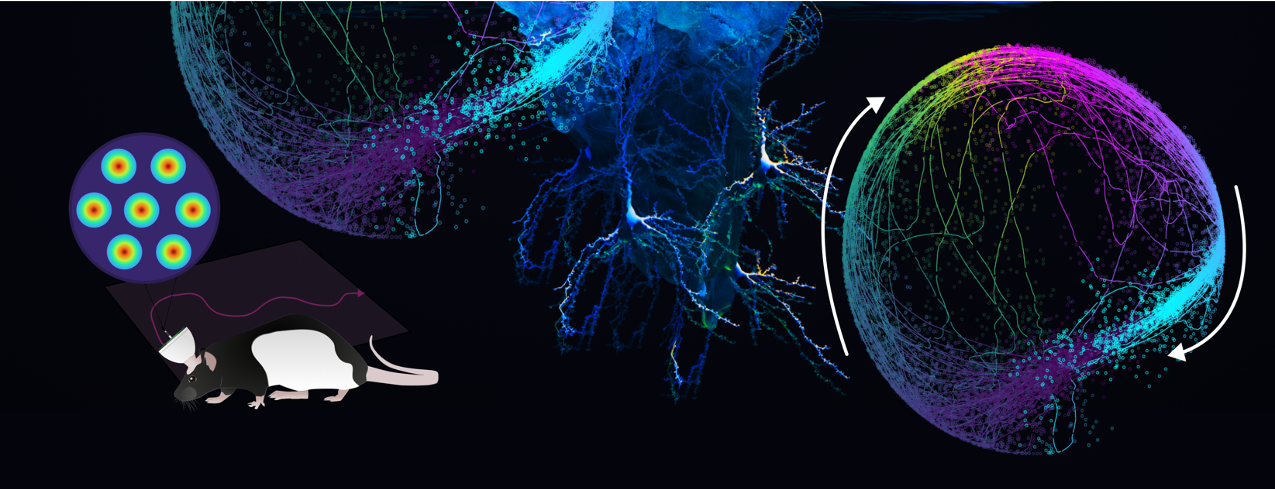Recent advances in machine learning have contributed to the emergence of powerful models for how humans and other animals reason and behave. In this course we will compare and contrast how such brain models as well as brains create intelligent behavior.
- Professor: Alexander Mathis
- Professor: Martin Schrimpf
- Teacher: Abdülkadir Gökce
- Teacher: Hossein Mirzaei Sadeghlou
- Teacher: Merkourios Simos

- Professor: Silvestro Micera
- Professor: Dimitri Van De Ville
- Teacher: Chun Hei Michael Chan
- Teacher: Alexandre Cionca
- Teacher: Ilaria Ricchi
- Professor: Stéphanie Lacour
- Professor: Giuseppe Schiavone
- Professor: Mahsa Shoaran
- Teacher: Daney Alex
- Teacher: Victor Druet
- Teacher: Yasemin Engür
- Teacher: Scott Andrew Erickson
- Teacher: Emma Farina
- Teacher: Houman Javaheri
- Teacher: Luca Robert Liebi
- Teacher: Horacio Londono Ramirez
- Teacher: Eleonora Martinelli
- Teacher: Desirée Maulà
- Teacher: Pietro Palopoli
- Teacher: Yashwanth Vyza
- Teacher: Amitabh Yadav
- Professor: Olaf Blanke
- Professor: Grégoire Courtine
- Professor: Friedhelm Christoph Hummel
- Professor: Rebecca Jane Jones
- Professor: Silvestro Micera
- Teacher: Unnat Hemangbhai Antani
- Teacher: Francesca Barcellini
- Teacher: Angela Braccia
- Teacher: Paul de Fontenay
- Teacher: Inssia Dewany
- Teacher: Michele Di Ponzio
- Teacher: Emma Farina
- Teacher: Berenice Favre-Bulle
- Teacher: Andreea-Maria Gui
- Teacher: Wei Chung Hsu
- Teacher: Lou Colette Kohler Voinov
- Teacher: Achilleas Laskaratos
- Teacher: Beatrice Lugli
- Teacher: Vi Anh Nguyen
- Teacher: Johannes Sebastiaan Nieuwenhuis
- Teacher: Leonardo Pollina
- Teacher: Paula Sanchez Lopez
- Teacher: Yue Yang Teo
- Teacher: Fabienne Windel

Systems neuroscience is the study of the nervous system at the level of neural circuits and networks. It seeks to understand how groups of neurons work together to process information and generate behavior. This field of neuroscience combines techniques from multiple disciplines, including physiology, anatomy, genetics, and computer science, to investigate the complex interactions between brain cells and how they give rise to behavior. The course will use a variety of teaching methods, including lectures, discussions, primary literature reading, and hands-on coding activities.
- Professor: Mackenzie Mathis
- Teacher: Alejandro Rodriguez Guajardo
- Teacher: Lana Maria Smith
- Professor: Friedhelm Christoph Hummel
- Teacher: Paul de Fontenay
- Teacher: Michele Di Ponzio
- Teacher: Rebecca Jane Jones
Lecturer: Wulfram Gerstner.
Assistants: Kasper Smeets, Tam Nguyen
Lectures on Monday 9.15 am - 1 pm (INM200)
Neuronal networks, consisting of neurons and synapses that form changeable connexions between the neurons, are thought to be the basis of learning, memory, and thinking. In this course we develop and use mathematical modeling techniques to describe neuronal activity and discuss aspects of neuronal dynamics, learning, and memory.
- Professor: Wulfram Gerstner
- Teacher: Louis Henry Pezon
- Teacher: Kasper Smeets
- Teacher: Shuqi Wang
- Teacher: Zihan Wu
